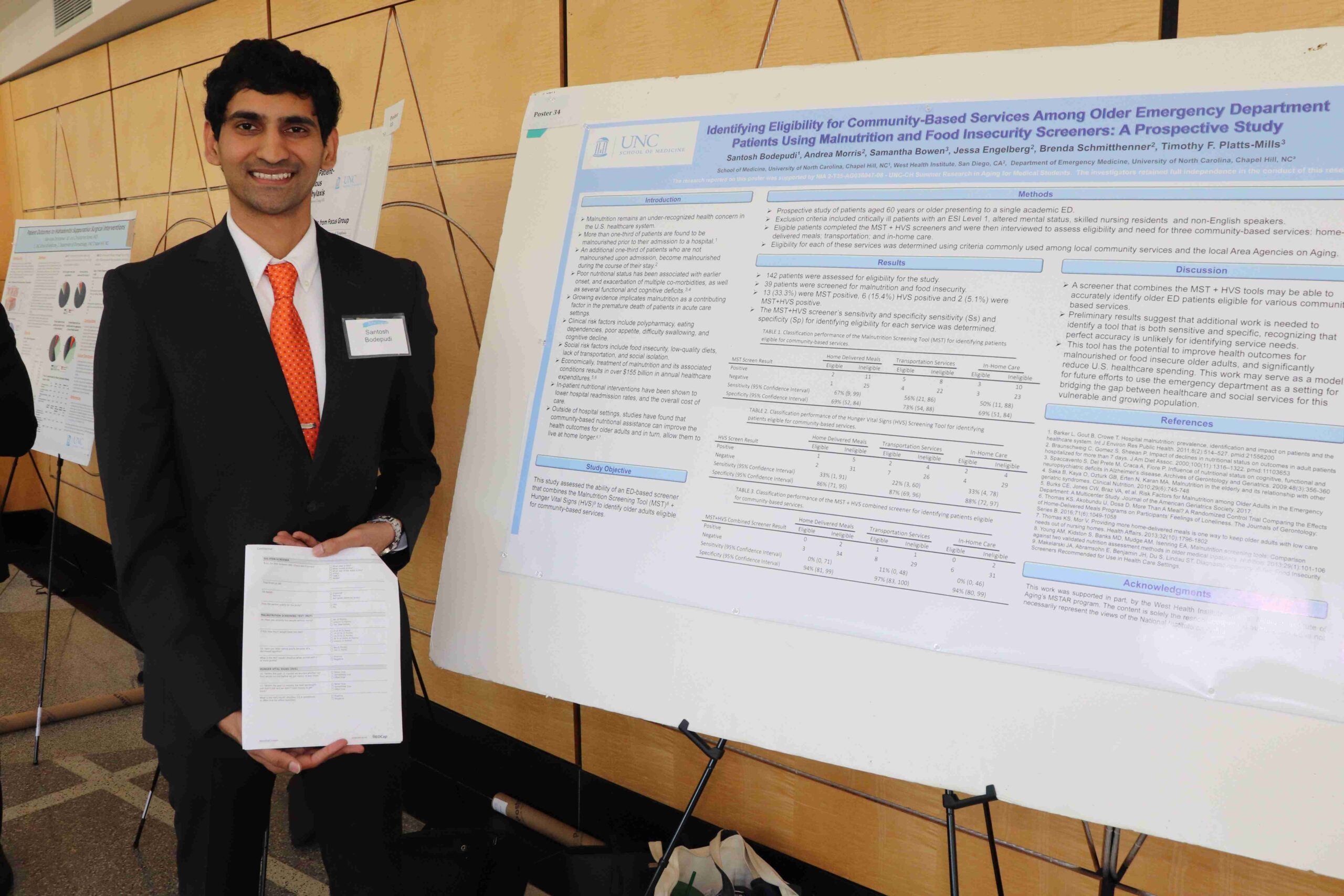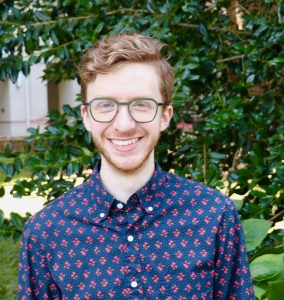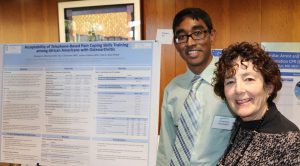Research

We are committed to advancing innovative, high-quality geriatrics interprofessional education, research in geriatric medicine, and geriatric clinical care. In collaboration with the Center for Aging and Health, our overarching goal is to improve the health and well-being of the aging population across North Carolina and the nation.

Focus Areas
Research in the Division of Geriatric Medicine occurs in partnership with multiple Centers, Institutes, Divisions, Departments, and Schools at UNC. Furthermore, our faculty are Principal Investigators on research grants aimed at bringing critical evidence-based findings into healthcare practice to improve the care of older adults.
Alzheimer’s Disease and Related Dementias
Duke-UNC Alzheimer’s Disease Research CenterThe NIH-funded Duke University and the University of North Carolina Alzheimer’s Disease Research Center (Duke/UNC ADRC) brings together leading researchers in Alzheimer’s disease and related dementias across two major research institutions. Specifically, we aim to catalyze and support research, innovations in clinical care and academic work force development (with North Carolina Central University, East Carolina University and UNC Pembroke as partner institutions) in this field.
Ultimately, our purpose is to reduce the burden of Alzheimer’s disease and related dementias regionally and nationally. The outstanding scientific environment at both institutions enables novel research to identify effective methods of prevention and/or early intervention, and to reduce racial and urban/rural disparities associated with dementia.
Through a 2018 grant from the Duke Endowment, the Division launched a ground-breaking program to transform hospitals into dementia-friendly centers of care. The Duke Endowment-funded Dementia Friendly Hospital Initiative program brings comprehensive dementia-friendly training to four UNC Healthcare Hospitals. In addition, it serves as a blueprint for program expansion both regionally and nationally. UNC Hospitals Hillsborough Campus is the pilot site for hospital-wide training of all staff and clinicians who interact with patients with dementia.
Workforce Education on Aging
Carolina Geriatric Workforce Enhancement ProgramThrough our HRSA-funded Carolina Geriatric Workforce Enhancement Program (GWEP) grant, Division faculty along with Center for Aging and Health staff have disseminated Geriatrics research and best practices for the care of older adults to 30,000 healthcare providers and 31 rural and underserved primary care sites across North Carolina. Additionally, UNC’s CGWEP program has been awarded a 2015 supplemental grant for Alzheimer’s Disease and Related Dementias to train health care providers in dementia care.
In 2019 HRSA funded UNC and the Center for Aging and Health as North Carolina’s primary site for the GWEP program. This latest award will continue to integrate geriatrics throughout the health care workforce. Specifically, it will implement training to improve dementia care, increase rates of advance care planning, target chronic opioid use, and lower both falls rates and rates of uncontrolled diabetes.
Delirium Research
Delirium Research Division Chief Dr. Jan Busby-Whitehead is Co-Investigator and Dissemination Task Force Co-Leader for the NIA’s Network for the Investigation of Delirium: Unifying Scientists (NIDUS). NIDUS gathers data on all delirium research, grants, and studies worldwide, and advocates to advance delirium research and understanding. NIDUS has five Cores:
Division Chief Dr. Jan Busby-Whitehead is Co-Investigator and Dissemination Task Force Co-Leader for the NIA’s Network for the Investigation of Delirium: Unifying Scientists (NIDUS). NIDUS gathers data on all delirium research, grants, and studies worldwide, and advocates to advance delirium research and understanding. NIDUS has five Cores:
- Delirium Research Hub – Focuses on improving research collaboration
- Measurement & Harmonization – Develops delirium measurement resources
- Pilot Awards & Innovation – Encourages new delirium research
- Mentoring & Career Development – Trains and develops future delirium researchers
- Dissemination & Communication – Communicates news on delirium research
Dr. Adrian Austin (MD, MCSR) is a delirium researcher who is dually board certified in Geriatric Medicine and Critical Care / Pulmonary Medicine. Additionally, he has two pilot projects on delirium: a tablet-based delirium assessment tool for home use and a pharmacogenomic study of dose and response variability among mechanically ventilated ICU patients.
Deprescribing
DeprescribingDr. Ferreri also led a 2016 CDC-funded grant on implementing an integrative falls prevention program for which Dr. Busby-Whitehead is a Co-Investigator. This work led to the development of STEADI-Rx. This guide helps improve collaboration between prescribers and pharmacists to screen patients and intervene to reduce falls risk.

Joshua Niznik, PharmD, PhD, Assistant Professor of Medicine, leads a program of research in geriatric medicine aimed at medication optimization for nursing home residents with dementia. In 2020-2021, Dr. Niznik was a member of the US Deprescribing Network Junior Investigator Initiative. Also, he was awarded a USDN pilot grant to evaluate deprescribing of bisphosphonates. This led to his five-year K08 Mentored Clinical Scientist Development Award from the National Institutes on Aging.
The study seeks to evaluate the risks and benefits of deprescribing versus continuing bisphosphonates. The target population is older nursing home residents with Alzheimer’s Disease (AD) and AD-Related Dementias (AD/ADRD). Dr. Niznik’s program of deprescribing research also includes collaboration with Eshelman School of Pharmacy faculty member Carolyn Thorpe, PhD, MPH. This research will evaluate medication de-intensification in older Veteran nursing home residents near end of life.
Physical Function and Obesity in Older Adults
Dr. John Batsis ResearchPalliative Care
Palliative Care for Stage IV CancerThis project addresses the gap in dementia-specific advance care planning and medical treatment decisions for clinicians who provide primary care. Specifically, the training uses 4 video-based advance care planning scenarios and an accompanying training toolkit. Furthermore, trained clinicians are assessed for actual application of these skills in their clinical encounters. In addition, the training modules are disseminated through collaboration with Vital Talk.
Aging Research Training Programs
T-32 | Cancer and Older AdultsDr. Hyman Muss, Vice Chair of Hematology/Oncology and Dr. Jan Busby-Whitehead, Geriatric Medicine Division Chief, are Co-Principal Investigators and lead the Geriatric Oncology Program. This program trains fellows in Medical Oncology and Geriatric Medicine through several pathways.

UNC’s Division of Geriatric Medicine is one of seven national Medical Students Training in Aging Research (MSTAR) training centers. It has been funded since 2010. The National Institute on Aging (NIA) sponsors this program to connect medical students with mentored research opportunities and academic experiences. Mentorship helps to advance students’ knowledge of aging. It also exposes them to broad possibilities for basic science, clinical, and health services research.